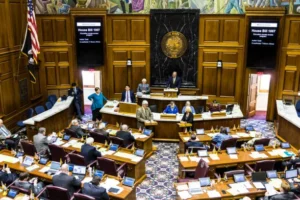The Donlin mine controversy has become a vital issue in Alaska’s U.S. House election. Republican candidate Nick Begich constantly criticizes presidential decisions that limit resource development. At the same time, Democratic incumbent Rep. Mary Peltola highlights her advocacy for the Willow oil project in the National Petroleum Reserve. Although Begich supports controversial projects like the Pebble Mine, Peltola takes a more measured approach.
Peltola backs oil drilling in the Arctic National Wildlife Refuge (ANWR) and on the North Slope, setting her apart from many Democrats in other states. However, she opposes the Pebble Mine and the Ambler Road project, which aligns with local corporations that have pulled back from the Ambler Road initiative. At the same time, she supports the Donlin gold mine in Southwest Alaska, reflecting regional backing.
On the other hand, Begich opposes the Environmental Protection Agency’s preemptive veto of the Pebble project. He argues that it sets a dangerous precedent for resource management in Alaska. He believes all development projects should undergo stringent regulatory scrutiny to protect long-term resources over short-term gains.
Peltola has taken some heat for changing her position on the Donlin mine. After opposing it in the wake of the 2014 Mount Polley Mine disaster, she shifted her stance earlier this year. Her reason was the strong backing from the local community. Calista Corporation, which owns the land where the mine sits, now fully supports her, and Peltola stresses that her decisions are guided by what regional corporations want. For her, it’s about listening to the people directly impacted and ensuring their voices shape development in their areas.
Peltola connects her views to the Alaska Native Claims Settlement Act, which gave Native corporations land for economic development. She thinks canceling these projects now would breach a governmental pledge, like disregarding Indigenous treaties. To her, it’s about fairness and honoring the commitments made so that Native corporations can use their land as intended and benefit from the resources. It’s about respecting the agreements and ensuring that these communities have the opportunity to thrive economically, as initially promised.
This news story was originally published by Alaska Beacon.










